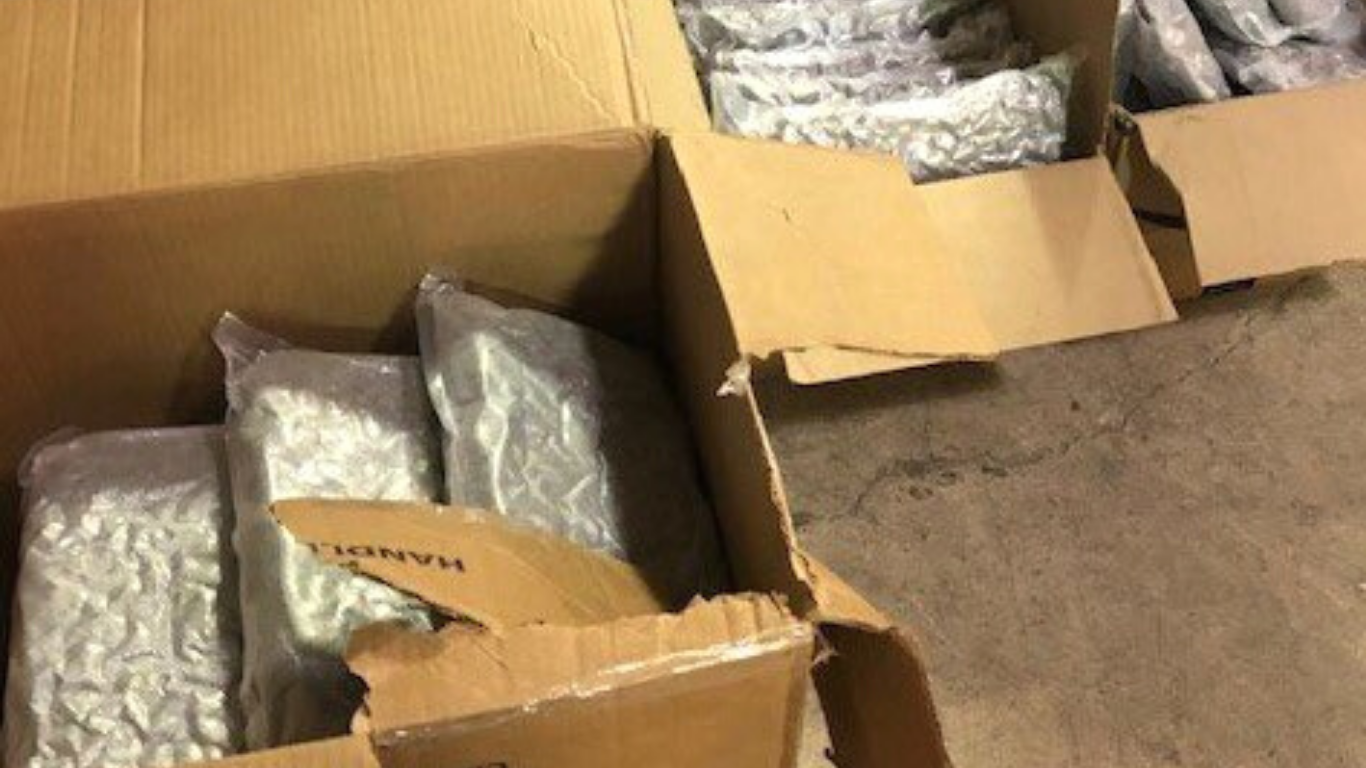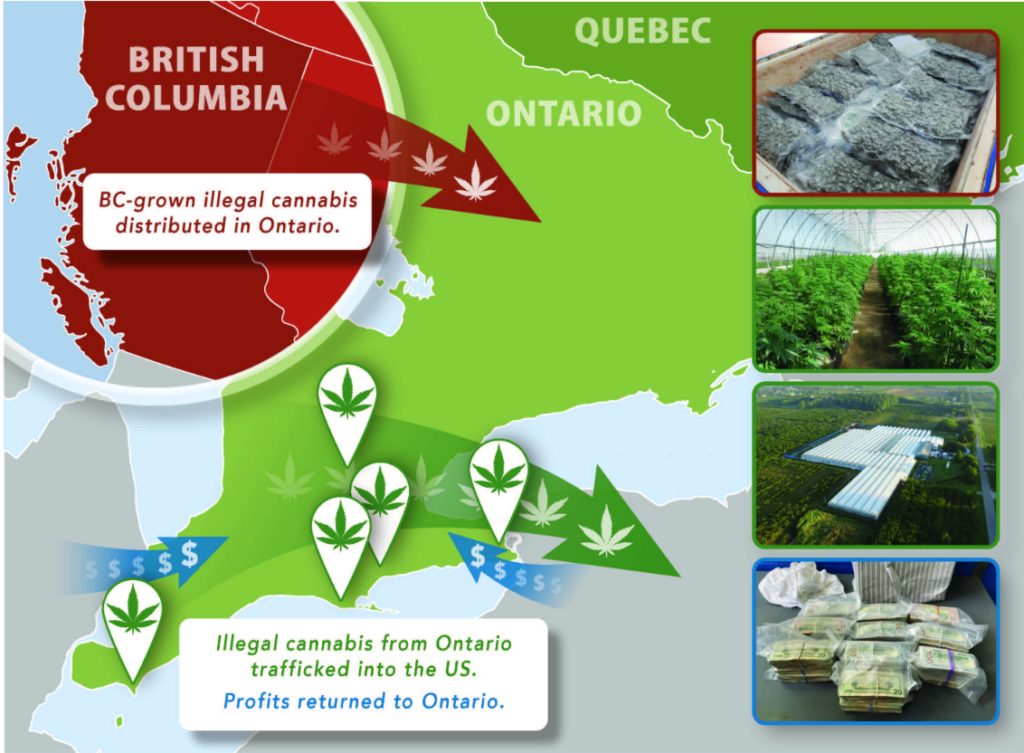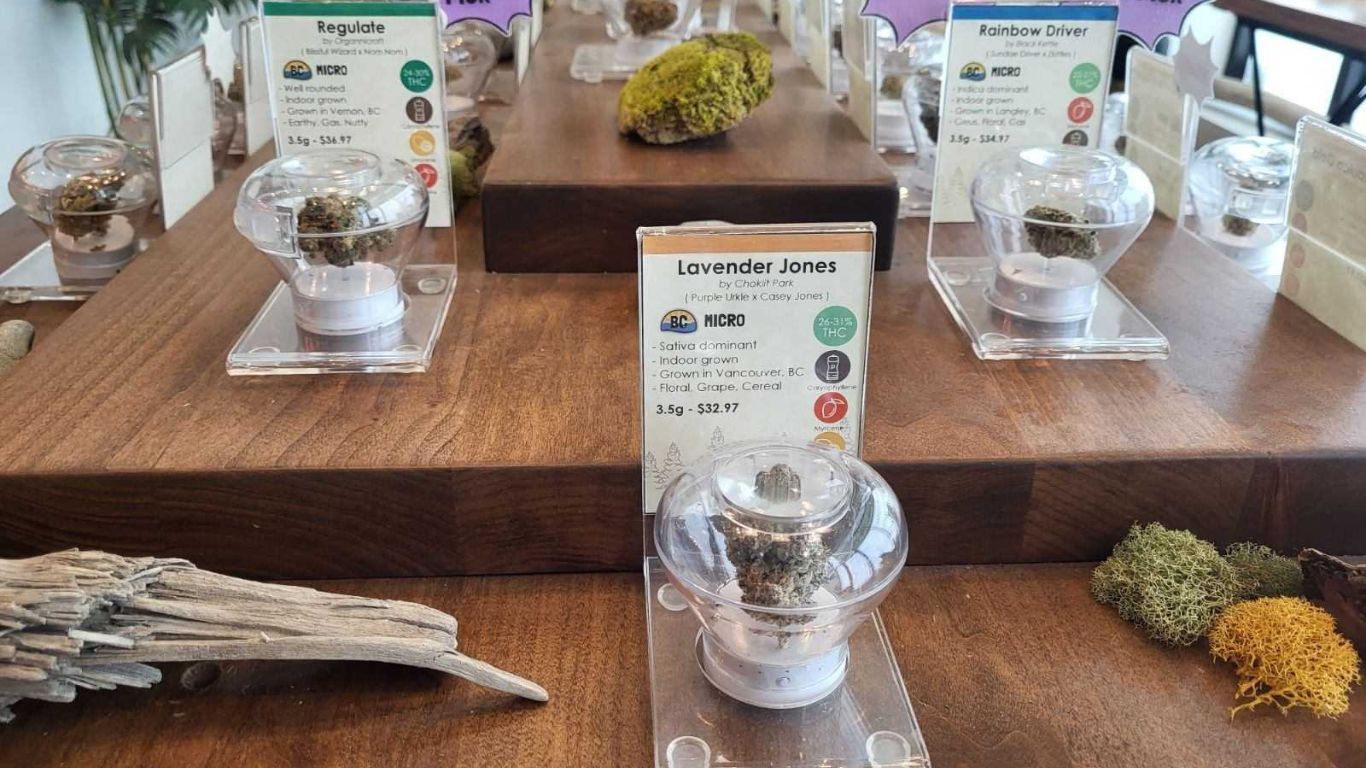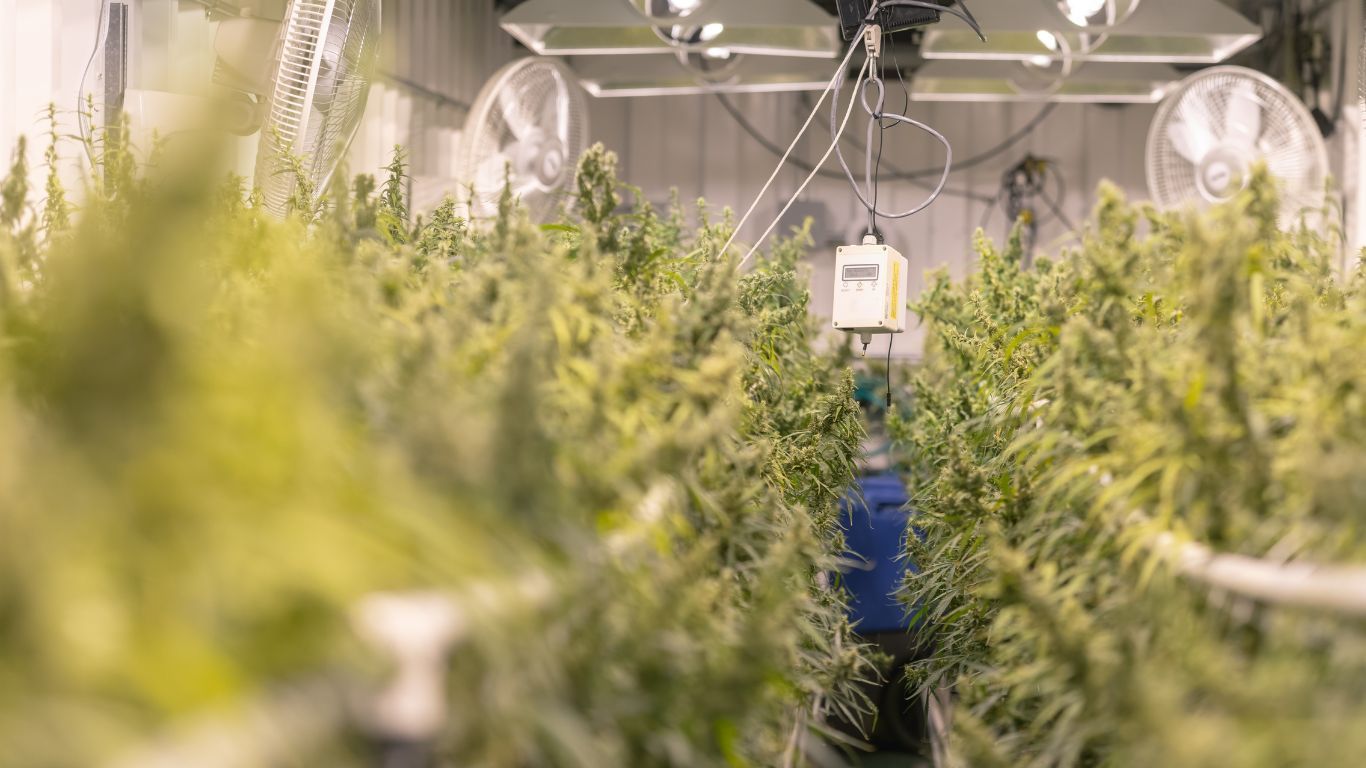
US border authorities now say they have captured more than 40,000 pounds of cannabis coming in from Canada since last October, valued at more than $90 million US.
Both US and Canadian authorities have intercepted numerous large cannabis shipments at or destined for the US border since the two countries closed their border to all non essential traffic in March due to the global pandemic. The bulk of seized shipments has been since the border closure in March.
Just last week, US and Canadian authorities have arrested four and seized over 800 cannabis plants and dried cannabis from an illegal grow operation, and approximately 400 grams of suspected cocaine, as well as suspected restricted and prohibited handguns.
On August 6, U.S. Customs and Border Protection (CBP) officers at the Port of Buffalo seized another 240 kg (530 lbs.) of cannabis in commercial shipments disguised as Numerical Control Machines.
In June, the same agency said they had intercepted the largest cannabis bust at the US Canada border ever, worth $20 million.
“The resurgence of large-scale illicit marijuana seizures is alarming and brazen given the public health crisis,” said Kevin Kelly, the HSI special agent in charge in June.
Canadian authorities also announced more than $10 million worth of cannabis seized from two Ontario warehouses in June, destined for the US.
The first, on May 22 in Brampton, BSO workers noticed anomalies in a load of gardening mulch to be sent to the US. Employees spent nine hours looking through the 5,400 kilogram shipment of mulch, locating over 685 kilograms of suspected cannabis.
The second seizure, on May 28, was another 800 kilograms of suspected cannabis that was hidden in plastic kitchen containers at a Mississauga warehouse. The product was detected by a drug-sniffing dog. The products were also ready to be shipped to the US.
“Large-scale marijuana trafficking is not an isolated crime,” said Kevin Kelly, HSI Buffalo Special Agent-in-Charge in an announcement from the US. “Smugglers are often connected to larger criminal syndicates who profit from a wide variety of crimes, and we must continue to dismantle all forms of their illicit activity.”
In April, a nurse from Ontario was stopped at the US border with 150 pounds of marijuana while on her way to a Detroit hospital to help them manage the COVID-19 pandemic. And earlier that month, US border officials found and seized 31 kg of cannabis from a truck at the Queenston-Lewiston Bridge at an Ontario/New York border crossing.
In May of this year, US Homeland Security and U.S. Border Patrol agents from the Port Angeles Station seized a 23-foot Bayliner and 497 pounds of marijuana that entered US waters from Canada.
I think it’s fair to say that there are legitimate business that are engaged in this activity. You have legitimate growers that are exploiting the black market, capitalizing on that market, under the guise that they are growing it under a licence of Canada.
Kevin Kelly, HSI Buffalo Special Agent-in-Charge
On June 5, a man was found unconscious in the Detroit River tied to a “bushel” of over 200kg of cannabis, near Celeron Island, a small island on the US side of the river. According to US officials, he was unconscious and had a tow strap attached to his body, with the other end of the strap tied to a bushel of marijuana. The man had told officials he had been using a submersible device to ferry cannabis, cocaine and cash between the US and Canada.
Last year, US officials said they had seen a significant spike in seizures of cannabis coming from Canada since legalization on October 19, 2018, including one incident of a low-flying helicopter near the border tipping authorities off to 50kg of cannabis in hockey bags hidden in the woods.
US authorities tell WIVB in Buffalo, New York that they at times even use informants in Canada to infiltrate criminal trafficking organizations, and claim that there are legitimate, licensed business taking part in this activity.
“For us to be able to seize more than forty thousand pounds of marijuana, I would say that that’s a problem,” Kevin Kelly, special agent in charge of Homeland Security told WIVB. “What we’ve discovered is the bad guys have an excellent business model. Everything is structured, everything is organized. To sit here and say that it is not sophisticated and organized is naive.
“I think it’s fair to say that there are legitimate business that are engaged in this activity,” continued Kelly. “You have legitimate growers that are exploiting the black market, capitalizing on that market, under the guise that they are growing it under a licence of Canada.”
It’s unclear what sorts of licences or business Kelly is referring to. A handful of recent, large scale busts in Canada, including at least one connected to large scale trafficking of cannabis to the US was operating under personal and designated medical licences. Criminals exploiting these types of licences is fairly well known in Canada, but these licences are not commercial licences and are often operating well outside the boundaries of what their licences authorize.












